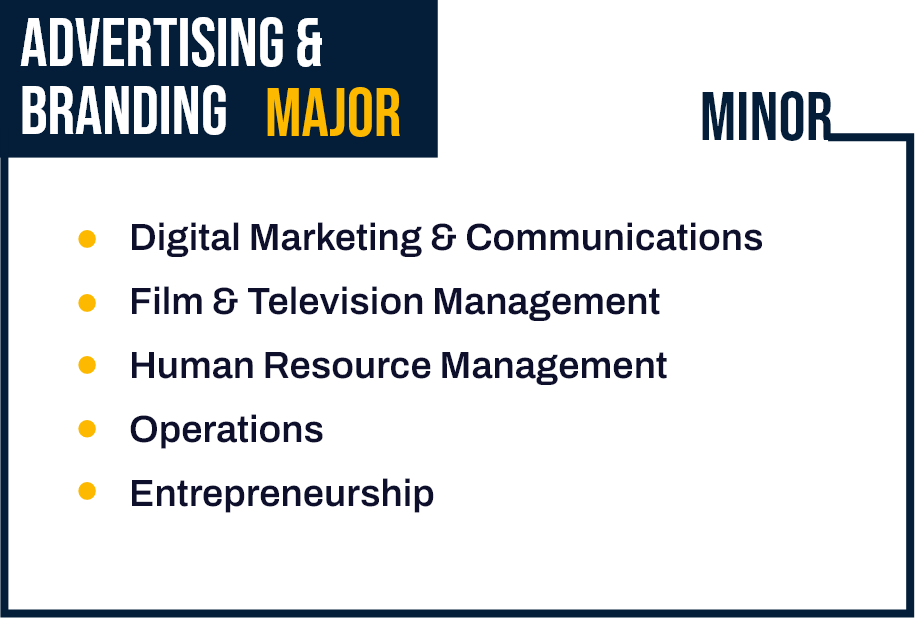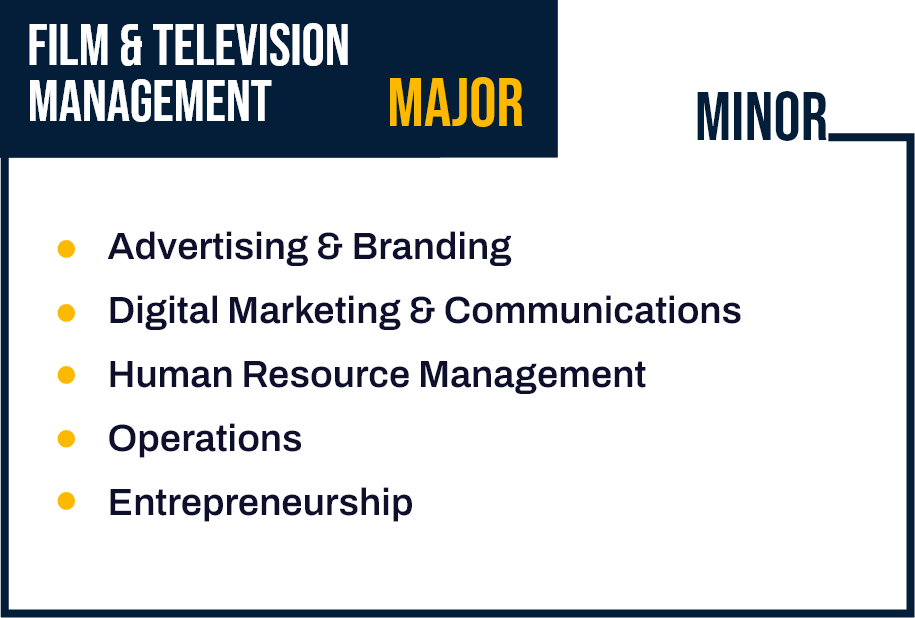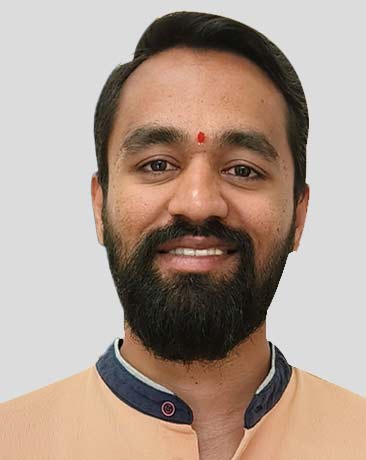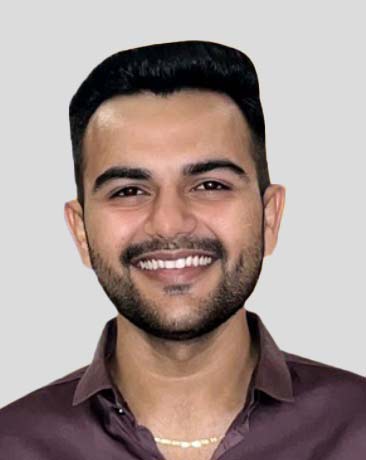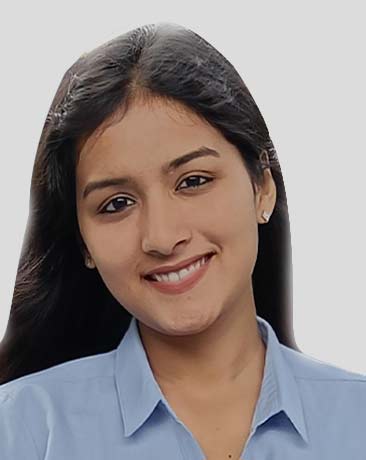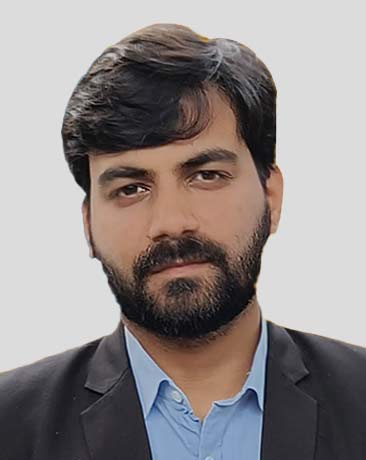At FLAME University, an MBA is more than a degree; it is a journey of transformation.
Rooted in liberal education, the program blends rigorous academics, innovative pedagogy, and real-world immersion to prepare graduates for careers at the intersection of business and communication. With globalization and the rise of new media, this program cultivates creative thinkers and problem-solvers who can navigate complex challenges with imagination, empathy, and clarity.
Duration: 2 years | Residential Program
Apply Now Download Brochure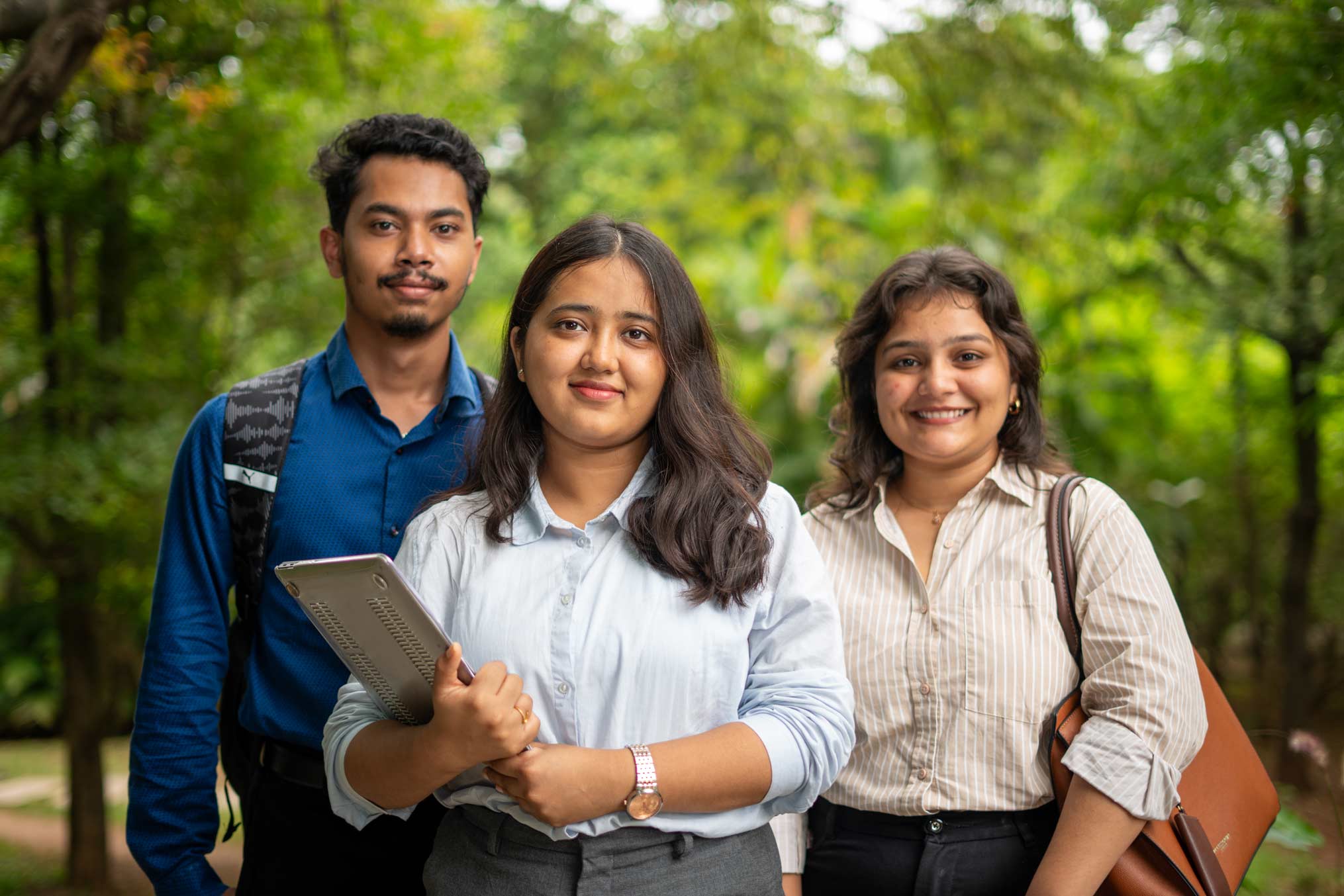
Design Your Future in Communications Management
Program Structure
The MBA (CM) program at FLAME University is divided into seven components: Core Courses, Specialization Courses (Major + Minor), Capstone Courses, Experiential Learning Courses, Liberal Education Courses, Graduation Project, and Open Elective Courses. Together, they provide a holistic and rigorous academic framework.
Core Courses
Explore essential domains of management, providing a strong foundation in all areas.
Specialization Courses
Delve deeper into an area of your choice. You can choose to declare either a major or a minor, or both, to specialize.
Capstone Courses
Engage in general management courses that offer a holistic understanding of the management domain, integrating various business functions.
Experiential Learning Courses
Gain real-world experience through summer internships, blending academic knowledge with practical exposure. The Career Academies led by industry professionals align business education with evolving industry needs.
Liberal Education Courses
Experience courses in social sciences, humanities, foreign languages, and fine & performing arts, fostering a well-rounded education.
Open Elective Courses
Select from various postgraduate-level management courses to tailor your learning experience.
Create Your Own Academic Journey
Major-Minor Combinations
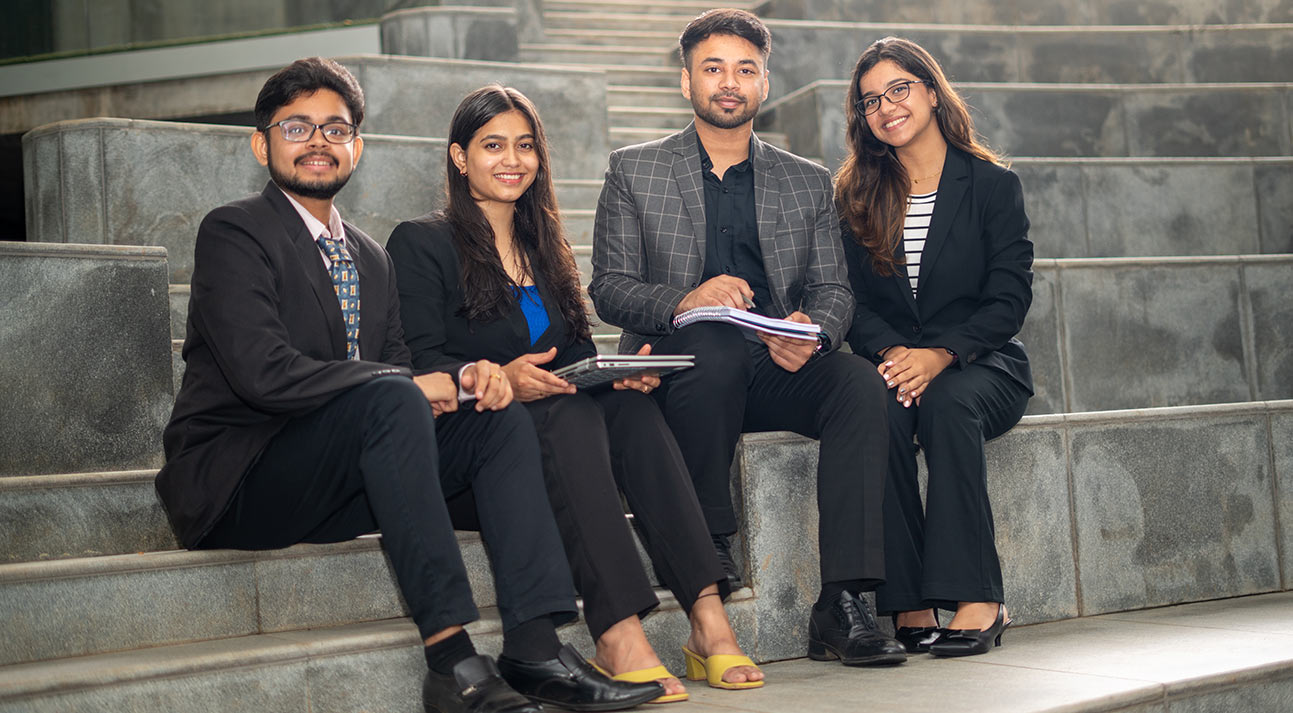
Interdisciplinary Learning
At FLAME, communications education is expansive. Beyond media and management fundamentals, students engage with liberal education courses in psychology, sociology, design thinking, languages, and fine and performing arts. This multidimensional learning cultivates critical reasoning, creative expression, and cultural awareness, skills that are essential to navigate the fast-evolving communications landscape.
Experiential Learning
Learning goes beyond the classroom. Through leadership workshops, training, and business sessions, students apply concepts in practice. Group projects, case studies, and simulations are essential to the teaching method, ensuring agility in problem-solving and decision-making.
A mandatory 8–10 week summer internship with leading organizations bridges theory with real-world practice, offering intensive workplace exposure in media, entertainment, advertising, branding, and digital industries. The program culminates with a Graduation Project, where students conduct applied research and develop strategic solutions to communication challenges.

Marketplace Simulation
What Students Say
Aligning Passions with Professional Pathways
Career Academies
The MBA (CM) program at FLAME University integrates Career Academies guided by industry professionals to align business education with evolving industry needs. Students gain role-based, career-relevant exposure through six academies:
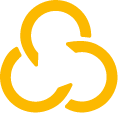
Data Analytics & AI

Capital Markets

People and Talent Management

Business & Consumer Marketing

Branding and Communication

Strategy & Consulting
These academies combine certifications, practitioner-led modules, industry field visits, and guest sessions, ensuring students graduate with the skills and insights demanded by today’s business world.
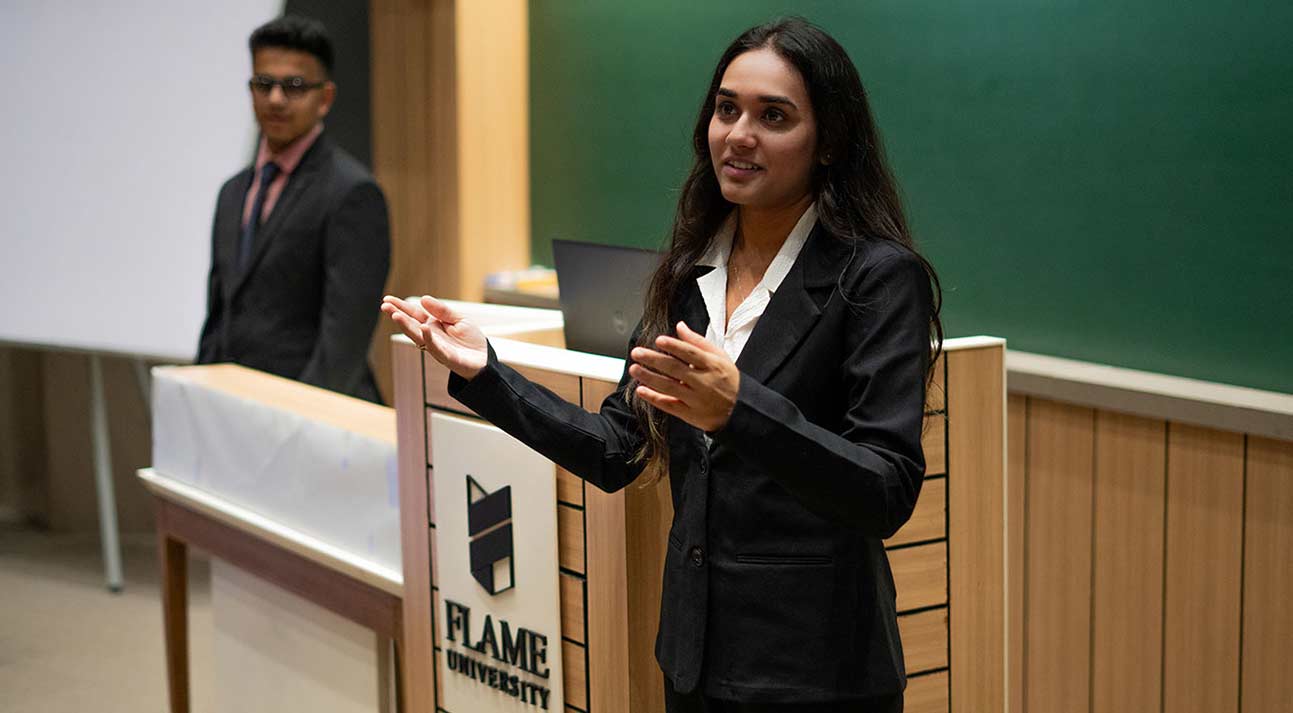
FLAME-ME360
As part of the Career Academies framework, FLAME-ME360 serves as a foundational module that fosters self-discovery and career alignment. Through reflective exercises, workshops, and one-on-one counselling, students identify their strengths, values, and aspirations, enabling purposeful academic and professional decisions. FLAME-ME360 empowers them to navigate ambiguity with confidence, build authentic personal narratives, and engage meaningfully with recruiters and industry networks.
Building Leaders for Global Opportunities
FLAME’s international immersion exposes students to global business ecosystems and best practices. Global collaborations involve curriculum development, faculty exchange, study abroad, research collaborations, and industry visits.
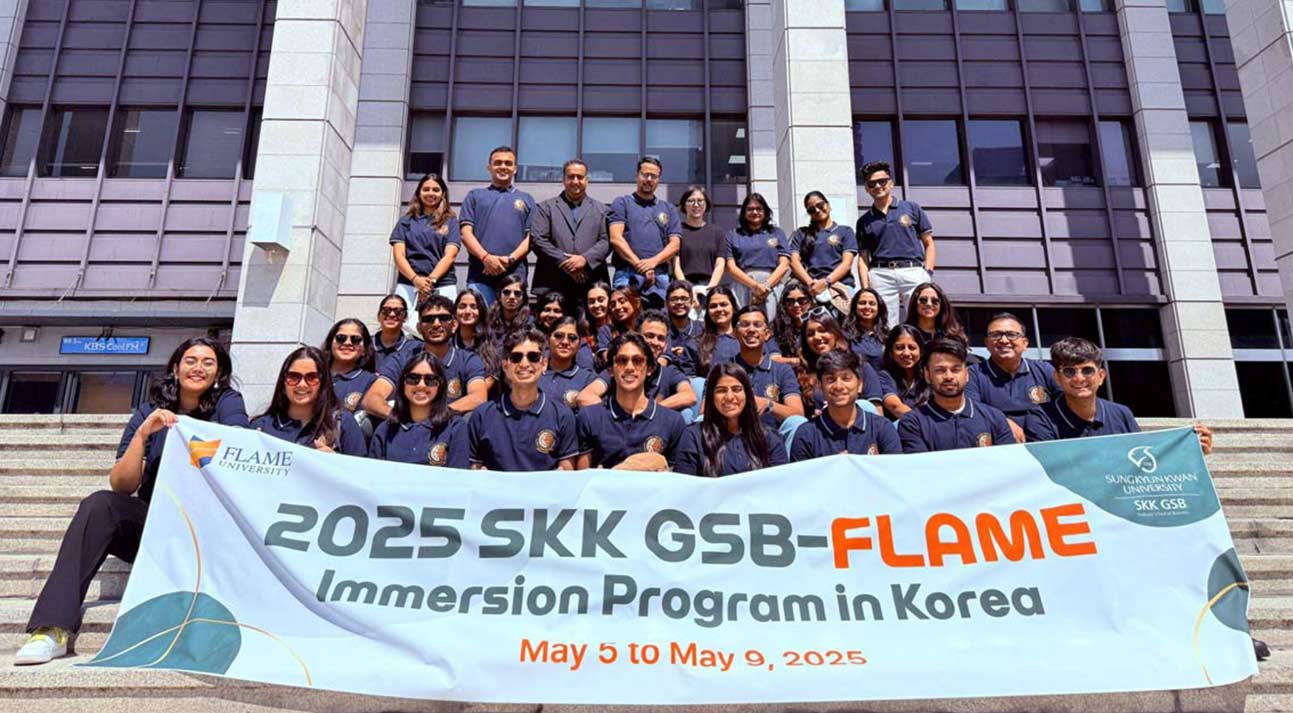
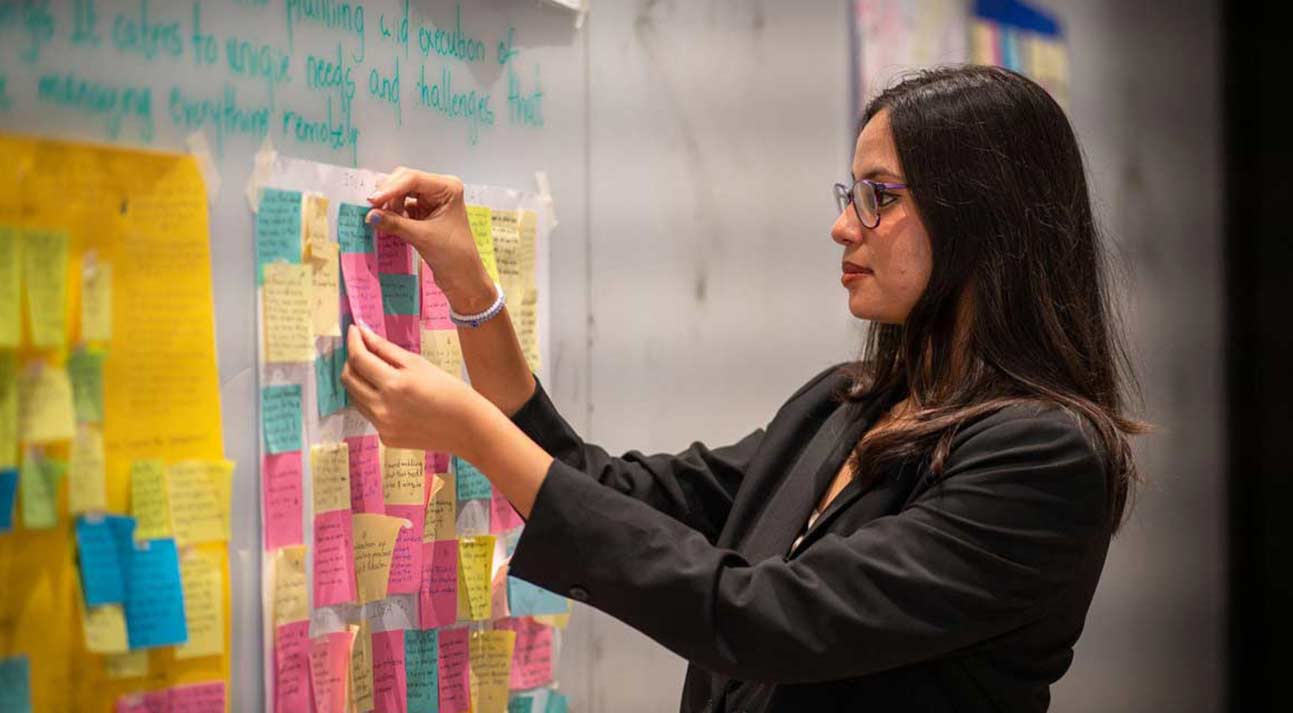
Transforming Potential into Purposeful Careers
The Career Services Office at FLAME University provides personalized guidance to help students build meaningful careers with lasting impact. Each student’s major-minor combination is mapped to a distinct professional path, ensuring alignment between academic choices and career aspirations. With a growing reputation among recruiters, FLAME has become a preferred destination for campus placements, attracting an increasing number of companies year after year.
100+
Hiring Organizations
20+
Locations
100%
Students Placed in 2025
10+
Training Modules
More Than Just a Campus
At FLAME, postgraduate students are encouraged to shape and enrich the campus experience by engaging in co-curricular activities that build leadership, teamwork, and personal growth. Opportunities include joining the Student Council, participating in fests, and exploring diverse clubs that foster both professional and personal development.
Know More


